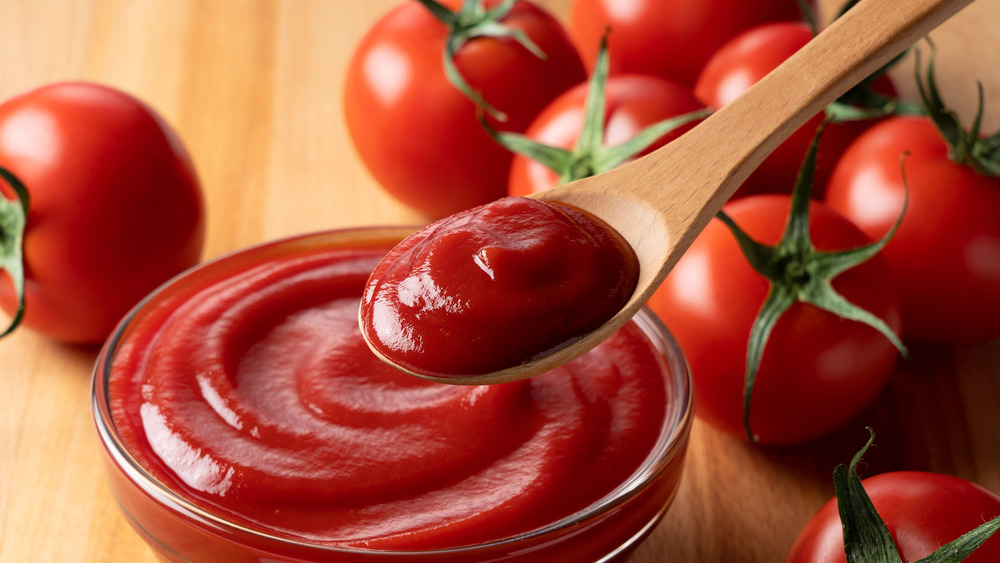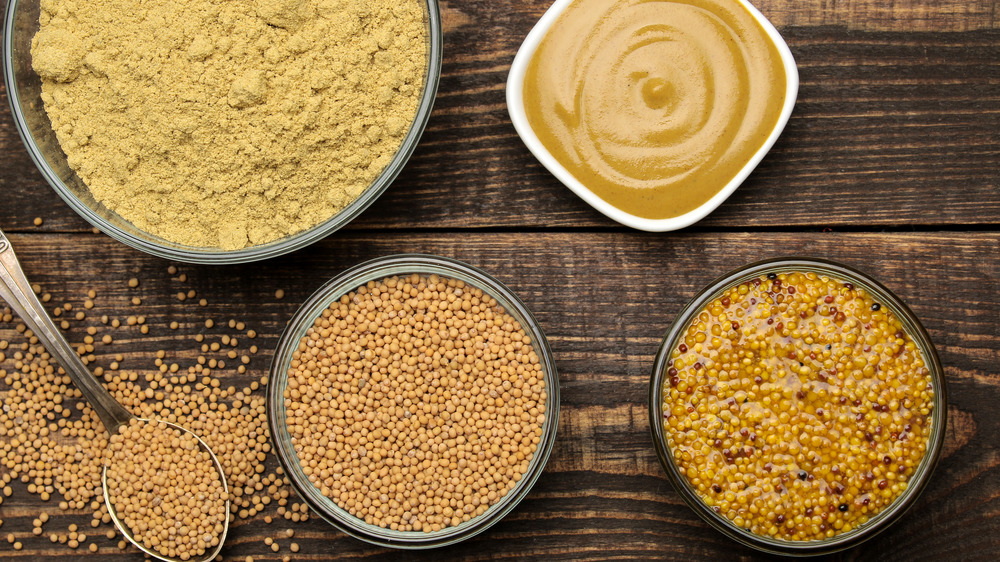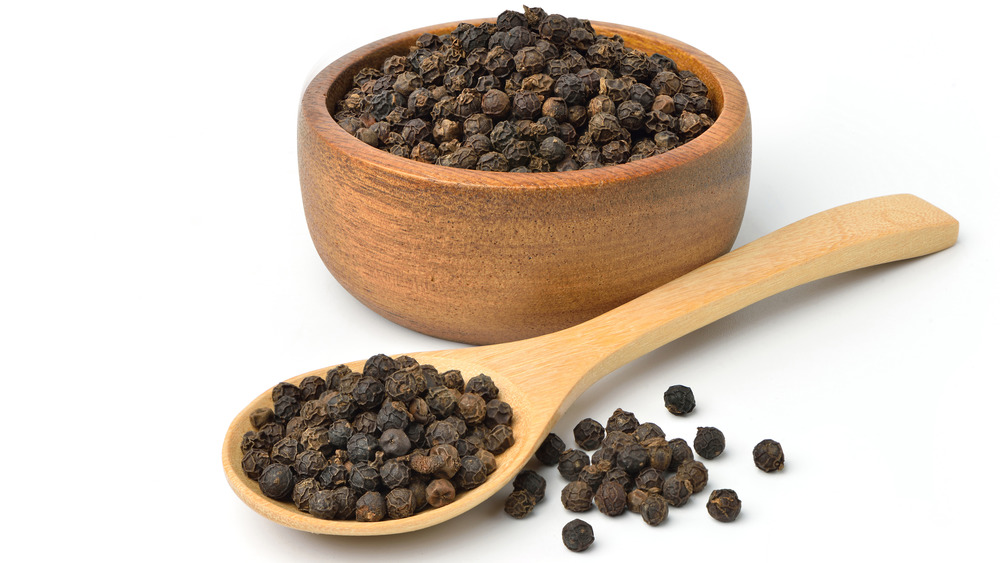Condiments That Used To Be Considered Medicinal
Ketchup. Mustard. Vinegar. All delicious toppings for your fries. And once upon a time, they eased conditions like stomach aches and other ills. That's right, the condiments put on side dishes had street cred in the early days of medicine. Traveling salespeople and local stores in the 17th to 20th centuries sold all kinds of cure-alls, from stomach elixirs to hair tonics. Ohio doctor John Cook Bennett, for instance, created a tomato sauce in 1834 and said that it could treat diarrhea, indigestion and rheumatism, reported Fast Company. According to The Complete Idiot's Guide to Vitamins and Minerals by Alan H. Pressman and Sheila Buff, Dr. Miles's Compound Extract of Tomato purported that "Tomato Pills Cure Your Ills" in the 1830s and '40s.
Ketchup pills became big business. Some versions were sold without actual tomatoes, or with laxatives added. They made "wild claims that their pills could cure everything from scurvy to mend bones," according to Ripley's. All the hoopla made the public distrust the product and it fell out of favor by 1850.
Miles and Bennett weren't completely wrong. While ketchup can't fix every ailment, it does contain vitamins, minerals, and lycopene, a nutrient from tomatoes with antioxidants. Unlike some treatments from that time period that contained alcohol, opium, cocaine, arsenic, or other harmful substances, at least ketchup never led to death or addiction.
There is no proof that ketchup works in a medicinal capacity, however, especially today when sugar makes up 25 percent of the recipe, reported The Washington Post.
Condiments: delicious and healthy?
Mustard and vinegar also provided good health ... or so people thought, according to Tim Lambert in his "A Brief History of Condiments," posted at Local Histories. In the sixth century BCE, the great mathematician and philosopher Pythagoras believed mustard could help scorpion stings. Hippocrates used the substance in medicines and made a poultice of it when treating toothaches. Hektoen International, a journal of medical humanities, said that while there is no certain connection to mustard use improving health conditions, the seeds do contain manganese, iron, magnesium and selenium — minerals with anti-inflammatory abilities.
The father of modern medicine, Hippocrates, used vinegar in wound treatment around 420 BCE, and Sung Tse, who created forensic medicine in the 10th century, believed washing hands in a mixture of sulfur and vinegar prevented infections incurred by autopsies, wrote Dr. Carol S. Johnston and Cindy A. Gaas in "Vinegar: Medicinal Uses and Antiglycemic Effect" in MedGenMed, posted at the US National Library of Medicine. Other conditions such as dropsy, poison ivy, coup, and more used vinegar as a potential cure.
Can pepper make you healthy?
Even today, people use certain types of vinegars, such as Apple Cider Vinegar (thought to have antimicrobial and antioxidant benefits), for health reasons. Part of that's folk medicine; as Healthline states, "Little research exists, and further studies are needed before it can be recommended as an alternative therapy."
Pepper wasn't just used for flavoring decades ago; it also served a medicinal purpose of sorts. The Mayans used it to lessen their symptoms of asthma and ease coughs. The Aztecs utilized it to reduce toothache pain, reported MedCrave Online. Healthline points out that the spice contains antioxidants, anti-inflammatory properties, and might have other health benefits as well. "Laboratory studies suggest that black pepper may improve cholesterol levels, blood sugar control, and brain and gut health," they said. But, "despite these promising findings, more stories in humans are needed to better understand the exact health benefits of black pepper."
So, embrace your condiments for flavoring ... and ask your doctor about the rest.


